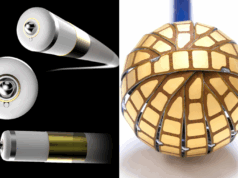
Medtronic has announced results from the CRYSTAL AF (Cryptogenic stroke and underlying atrial fibrillation) clinical trial have been published in The New England Journal of Medicine. The trial found that continuous cardiac monitoring with the Reveal XT insertable cardiac monitor (ICM) was superior to standard care at detecting atrial fibrillation (AF) in patients who have had strokes of undetermined causes (cryptogenic stroke). The global study met its primary endpoint by demonstrating that continuous monitoring with the Reveal ICM discovered AF in 6.4 times more patients than standard care at six months (p=0.0006).
In addition, the trial found that compared to standard care (including electrocardiograms, Holter monitors and other short-term diagnostic tests prescribed over the follow-up period), the Reveal ICM detected AF in 7.3 times more patients at 12 months (p<0.0001), and 8.8 times more patients at 36 months (p<0.0001). When followed for 36 months, 30% of the patients in the ICM arm had AF detected.
“The publication of these data further necessitates the need for us to reconsider our approach to patients with cryptogenic stroke. If we can pinpoint the cause of stroke, we then can apply the most appropriate treatment,” says Johannes Brachmann, chief of cardiology at the Coburg Hospital in Coburg, Germany. “As AF is often intermittent and asymptomatic, we can’t rely on symptoms to decide who has AF or who needs ECG monitoring. Continuous monitoring of the heart rhythm can help us find those stroke patients whose AF is often missed with short-term monitoring. This can be explained by the amount of time that passes between episodes.”
One of the reasons that AF can be difficult to detect is that often it is not associated with symptoms. In the study, 79% of the first AF episodes detected had no symptoms. This means AF likely would have gone undetected by standard care due to patients’ inability to notice warning signs of this arrhythmia.
CRYSTAL AF is the largest global randomised clinical trial comparing continuous monitoring to standard care for the detection of AF in patients with recent cryptogenic strokes. It is a prospective, controlled trial that enrolled 441 patients at 55 centres in Europe, Canada and the USA from June 2009 to April 2012. The continuous monitoring arm used the Reveal ICM, which has an algorithm to automatically detect AF as well as other cardiac arrhythmias. The primary endpoint was time to AF detection at six months of follow-up.









